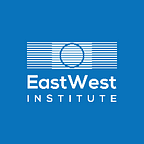What to Expect From Putin’s Re-election
Vladimir Putin has won re-election as president of Russia, by a wide margin. According to news reports, he received over 70 percent of the votes cast, with an estimated 60 percent of voters taking part. Despite allegations of irregularities and criticisms that authorities kept legitimate opposition to the incumbent president off the ballot, Putin has achieved what he set out to achieve: a clear mandate for the next six years.
But what is that mandate? And what are we to expect from Russia in the global arena?
Context is important. Putin’s last election, in 2012, came on the heels of significant public dissatisfaction (which led to mass protests the Russian president claims were orchestrated by foreign interests). This year’s election was in part an attempt to “put to rest ghosts of the past” by preventing displays of public discontent and demonstrating to audiences — domestic and foreign — a sense of order, continuity and strength. The strategy proved successful.
Putin’s campaign also pointed to other signs of stability: In spite of low oil prices, most economic indicators in Russia, including wages, unemployment and gross domestic product growth, are stable. None of the metrics is necessarily exemplary, and Russia’s poverty rate is still high, but the Kremlin is portraying its economic management as controlled and effective. Its efforts had a powerful psychological effect on the majority of the electorate. As Russians told me on my most recent visit, it could be a lot worse.
It’s true that Russia faces significant long-term problems. Its demographic trends aren’t positive, especially among the older European population that forms the bedrock of Putin’s support. Russia’s economy, despite serious efforts at reform, still runs on the sale of raw materials and traditional products like arms. In addition, the country continues to experience significant brain-drain, as talented young people leave home for abroad. The international business community recently expressed to me that economic change is on the administration’s agenda but that Putin “has no new ideas.” Of course, that’s to be expected; part of the cost of being in power for such an extended duration is that one justifies past activities and the status quo rather than taking a hard look at what changes may be necessary.
